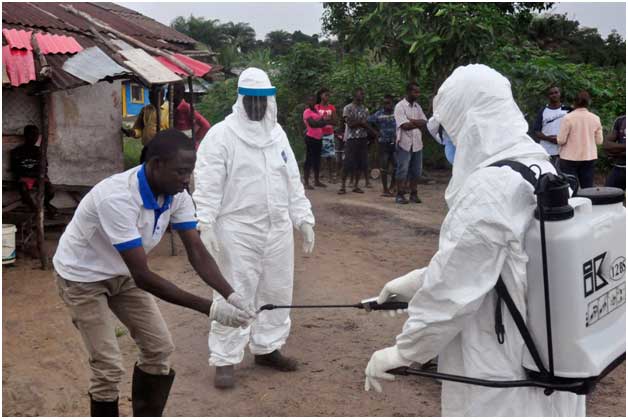The Covid-19 Narrative: The Nigerian Appraisal And Recommendations
Governance, among all its known good qualities, is best adjudged effective when it responds timely to issues and events that are of potential consequence and capable at most of stirring the peace and comfort of the people within its defined territory if out of control. It would be in the best interest of these people if its central players act always in this order. But first, you must have a government whose overriding business in governance is solely to satisfy the interest of the people.
The year 2020 is becoming an unprecedented year for many Nigerians, especially the last few spates of weeks. The past weeks were a pointer to the veracity of this utterance. They will remain forever indelible in the memories of Nigerians—as the country for the first time, in recent times, stood still! More ridiculous because we stood still to an enemy invisible. But looking at the situation right from the very outset, one would be made to ponder on the extent to which the country’s leadership could have gone in stemming the tide of this national tension caused by a virus. That is if they had simply made a strike on the iron while it was still hot.
The country leader, President Muhammadu Buhari, is infamously known for his „go slow“ attitude towards governance. His attitude at the early stage of Covid-19 advent into the country was no exception. He had only managed to bow to public pressure after several criticisms and calls calling him to act in his capacity; addressing the nation and the issue–which he responded to at the eleventh hour of the virus infiltration of the country.
Recently, the Director-General of Nigerian Centre for Disease Control(NCDC) said that more than 80% of the coronavirus cases in the country are from people who returned to Nigeria, most likely some days before the president finally deemed it a matter of urgency to close international airports for foreign travels. This is a reflection, and it begs the question: couldn’t we have contained it if the responses and actions were to be quickened enough. Going by this, there’s surely no doubt that this tension could have been aborted or mitigated maximally if the leadership had done the necessary at just the right hour.
What it is now, and what it may look like?
What started with a single case of an Italian citizen contract of the deadly virus in the country, has today skyrocketed to an intimidating figure of 2882 cases, with 417 cases of recovery, and 93 death. As cases incline geometrically by double digits day after day, with recoveries threading at an arithmetic pace–by just a single digit, there are fears that the country could be wallowing in the real murky waters of the Covid-19 global emergency soon. That’s if nothing is done in the nick of time to nip the more negative increase in the bud.
But what are the real emergencies here? What dimensions could they take or spiral into?
New lexical items, in the short space of time, have started making entries into the lexicon of Nigerians. ‚Covid-419‘ (meaning fraudulent acts in dealing with the palliatives), and ‚Covid-hunger‘ are two of the most popular of these entries. Covid-hunger, in particular, is at the core of these emergencies. Covid-hunger has resulted from the failure of the leadership to save the livelihoods in their attempt to save lives. It’s a phenomenon not too unfamiliar by the effect to some Nigerians, save the name–Covid-hunger. Hunger and malnutrition have always been beastly phenomena in the country, which the leaderships have always tinkered on in putting in total check. The disparity: while hunger and malnutrition are phenomena common to a particular part of the country where insurgency and terrorism have taken their deep roots, Covid-hunger is more nationwide, and have resulted from the Covid-19 lockdown orders.
Lockdown in Nigeria, like every other places of the world, has put economic activities to a near-total halt. It means the government must set in to make the resultant economic hardship from it bearable to the masses. But that they only pay respect to in eloquent speeches but blab in actions taken. The result of this negligence may be devastating than expected. The country is currently witnessing an unprecedented increase in crime rate, but that is likely to be just the tip of the iceberg in coming weeks. As the hunger of the larger chunk of the population continues to inflict greater misery, the misery will, in turn, fuel greater anger towards the lockdown orders. The anger may come to inform of massive disobedience to the orders, public confrontation with the lockdown enforcers, deaths; sporadic demonstrations across the country. The troubling effects may see in one way, making the virus spread than it should, that aside, the scars will last till a post-Covid-19 Nigeria—heating harder the already heated Nigerian polity.
The urgent way forward!
The President, especially, must be quick in response and action but not wait to be reactionary to the damage. Health facilities should likewise be improved to aid their performance. More importantly, the leadership must now take it a serious matter of urgency to lighten the economic hardship by providing adequate palliative measures which must be far-reaching to the nooks and crannies of the country. Adequate palliatives to just a cross-section are as deadly as no palliatives.
Written by Adeniyi Pelumi
About the Author: Adeniyi Pelumi Junior, a graduate of BA Linguistics at Obafemi Awolowo, Nigeria. He is a professional in the business of writing, with almost three years experience now on writings cutting across articles and essays on socio-political happenings on the African continent, he has become to no little degree grounded in this art. Thus, he has gained an ample of experience: the wealth of knowledge on writing on things of salient socio-political discourse in Africa.
1113

